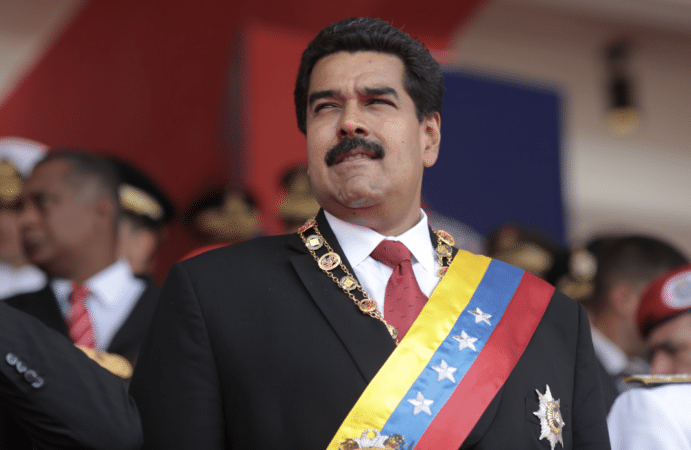TLDR
- US confirms strike on alleged drug-carrying submarine off Venezuela’s coast.
- Trump says Maduro offered oil deals to ease growing US political pressure.
- Survivors from the submarine strike are now in US military custody.
- Congress questions legality of US operations in Caribbean waters.
President Donald Trump warned Venezuelan President Nicolás Maduro not to “f*** around with the United States,” after confirming that U.S. forces carried out a strike on an alleged drug-carrying submarine in the Caribbean. The comment, made during a press conference at the White House, came as Trump also confirmed the capture of several survivors from the attack, marking a new phase in tensions between Washington and Caracas.
U.S. Strike on Alleged Drug Submarine
Speaking alongside visiting Ukrainian President Volodymyr Zelenskyy, Trump said the U.S. military had targeted a submarine believed to be used for large-scale drug trafficking. “We attacked a submarine, and that was a drug-carrying submarine built specifically for the transportation of massive amounts of drugs,” Trump stated.
The strike, believed to be the sixth in the region since early September, was the first to result in survivors being taken into custody. U.S. officials said the vessel was intercepted in waters off Venezuela, where military operations have intensified amid growing concerns about narcotics trafficking. The number of survivors and their identities have not yet been disclosed.
Trump has defended the operation as part of what he described as an “armed conflict” against drug cartels. He said the U.S. is using the same legal framework once applied in the fight against terrorism after the September 11 attacks. This framework, he noted, allows the use of lethal force and the detention of those captured in combat.
Tensions With Caracas Rise
The strike came amid reports that Maduro’s government has offered foreign investors, including U.S. interests, access to Venezuela’s oil and mineral reserves. Trump told reporters that Maduro had “offered everything” to ease mounting U.S. pressure. “He’s offered everything because he doesn’t want to f*** around with the United States,” Trump said.
Venezuelan officials have also proposed a transition plan in which Maduro could step down from office under certain conditions. According to a former Trump administration official, that offer was rejected by the White House. Relations between the two countries remain strained, and U.S. sanctions against Venezuelan officials and state entities remain in place.
Legal Questions Over Detained Survivors
The fate of those captured from the submarine remains unclear. Legal experts have raised questions about their status — whether they will be treated as prisoners of war or prosecuted in U.S. courts for drug trafficking. The administration has not released details about their detention or the evidence linking them to criminal activity.
Trump has said the operations are justified under existing counterterrorism authorities, allowing U.S. forces to capture and detain members of drug networks viewed as combatants. Critics in Congress, however, have expressed concern that the administration may be overstepping its authority by classifying drug cartels as wartime enemies.
Congress Seeks More Oversight
Lawmakers from both parties have voiced unease about the growing number of strikes in the Caribbean. Members of the Senate Armed Services Committee recently received a classified briefing on the operations but said intelligence officials were not present.
A War Powers Resolution introduced earlier this month sought to require the White House to obtain congressional approval before carrying out additional strikes. Although most Senate Republicans backed the administration, some lawmakers — including Democrat Tim Kaine and Republican Rand Paul — plan to introduce another measure to restrict any attack on Venezuela without congressional authorization.
As tensions rise, Trump’s remarks signal a tougher stance toward Maduro’s government and renewed U.S. activity in the region’s waters. The survivors of the strike now face an uncertain legal path as Washington weighs its next move.







